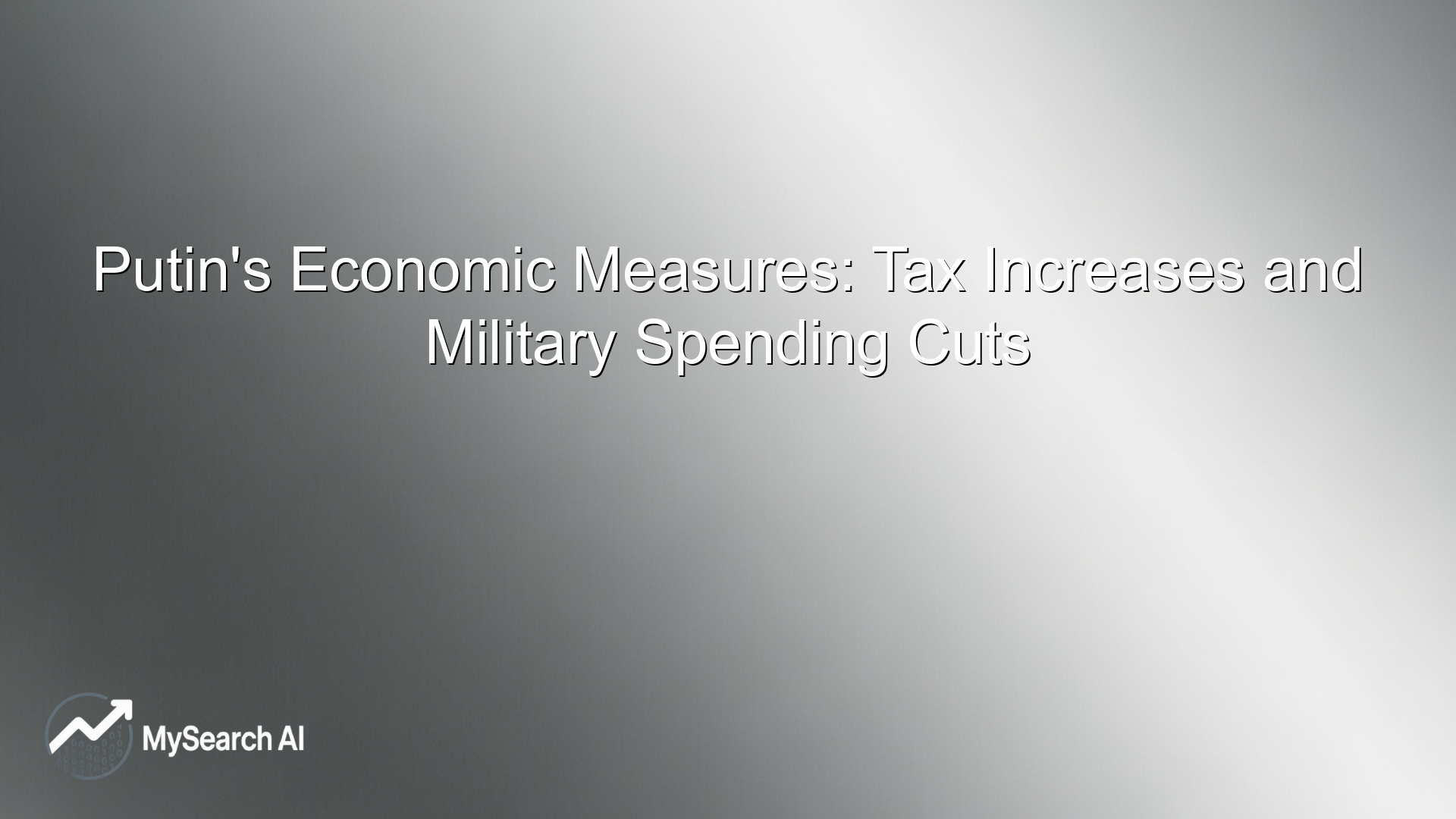Related Articles
Ask anything about stocks
Putin’s Economic Measures: Tax Increases and Military Spending Cuts
President Vladimir Putin is taking decisive action to stabilize Russia’s economy. Facing rising inflation and a significant budget deficit, Putin has announced economic measures involving tax increases and military spending cuts. These steps are vital for addressing economic challenges, while balancing growth with financial discipline.
Russia’s Economic Challenges
Russia’s economy faces pressure from multiple fronts. With inflation rates hovering at 7% and a budget deficit projected at 3% of GDP this year, the government is forced to reevaluate its fiscal policies. According to a report from Merkur, these economic pressures have triggered significant policy shifts in Russia. To counter these challenges, Putin’s administration is focusing on increasing revenue through tax hikes while reducing expenditures, particularly in military spending. This approach aims to bring inflation down and restore fiscal balance.
Impact of Russian Tax Increases
Russian tax increases are a key element of Putin’s economic measures. These hikes are expected to affect both individuals and businesses, aiming to boost government revenues significantly. A planned increase of corporate tax from 20% to 22% could generate much-needed revenue without stifling industrial growth. This strategy is not without criticism. Some fear that increased taxes could dampen business investments and consumer spending. However, the alternative of unchecked inflation could worsen economic stability. Recent discussions on social media reflect mixed sentiments but acknowledge the necessity of firm fiscal interventions.
Military Spending Cuts
Military spending cuts form the second prong of Putin’s strategy. Russia plans to cut defense expenditures by approximately 5%, shifting focus towards economic priorities. This reduction is aimed at reallocating resources to stimulate economic sectors like technology and infrastructure. These cuts could reshape Russia’s geopolitical stance by limiting defense capabilities, but the move is seen as vital for economic sustainability. Balancing defense and development, this measure aims to ensure long-term fiscal health while maintaining strategic deterrence.
Final Thoughts
Putin’s economic measures signify a pivotal shift in Russian fiscal policy. By implementing tax increases and military spending cuts, Russia aims to address core economic challenges such as inflation and budget deficits. While these steps might face public scrutiny, they offer a path towards stabilizing and potentially strengthening Russia’s economy. As investors and economists watch closely, the effectiveness of these strategies will reveal their impact on Russia’s future economic landscape. The government’s bold actions could set a precedent for balancing growth with fiscal responsibility.
FAQs
Why is Russia increasing taxes?
Russia is increasing taxes to raise government revenue in response to inflation and a budget deficit. This move is aimed at stabilizing the economy by securing funds for essential public spending.
What are the expected effects of military spending cuts?
Military spending cuts in Russia are expected to free up resources for vital economic sectors like technology and infrastructure. This could strengthen economic growth while maintaining essential defense capabilities.
How will these measures affect Russian citizens?
Russian citizens might face higher taxes, affecting disposable income and spending. However, these measures aim to prevent worse economic instability, such as hyperinflation, by maintaining fiscal balance.
Disclaimer:
This is for information only, not financial advice. Always do your research.



